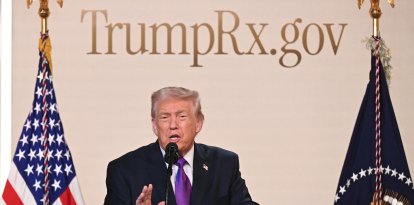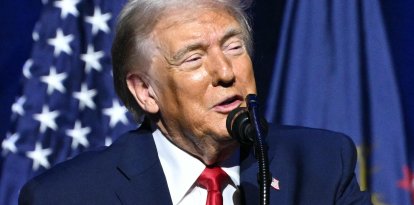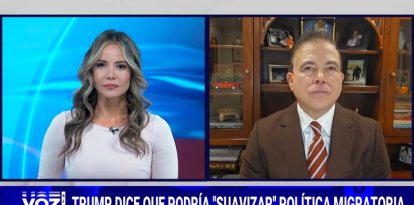Javier Milei launches the economic deregulation of Argentina: his announcement of all the financial measures
The libertarian set forth his mega decree on national television and assured that it is the first step in the "reconstruction" of the country.

Cordon Press
Javier Milei launched his plan to Days after arriving at the Casa Rosada, the libertarian made his first national broadcast as president precisely to fulfill one of his main campaign promises. In a pre-recorded video of approximately 15 minutes, he announced his mega decree to remove the Federal Government from the local economy.
Argentina's new president is in a hurry to free up local economic movement and made this known on Wednesday night. Assuring that "politicians are not God," he announced the most important points of the deregulatory decree he had been preparing with his team for the last few months.
In turn, the 53-year-old economist stated that the objective of the package of measures is to begin the "reconstruction" of the country and "return freedom and autonomy to individuals," although he clarified that it is only a first step.
The measures are framed in what is locally known as the Necessity and Urgency Decree (DNU). Protected by Article 99 of the National Constitution, it allows the president to immediately enact laws in exceptional situations and to take urgent measures that cannot wait.
The DNU comes into effect immediately and will remain that way unless rejected by a vote of both chambers. If only one approves, the decree also remains in force. For example, if the Senate approves the DNU and the Chamber of Deputies rejects it, the law remains valid.
Until the arrival of Milei, Argentina was not characterized as a country friendly to economic freedom. Indeed, the Heritage Foundation's latest Index of Economic Freedom ranked the South American country 144th out of 176, classifying it as "mostly repressed."
"Aggravated by corruption and political interference, the lack of judicial independence has seriously eroded the boundaries of government. Leftist spending measures and price controls distort markets, and government interference continues to hamper the financial sector. The loss of confidence in the government's determination to promote or even maintain open markets has discouraged entrepreneurship," explained the conservative think tank.
One by one, all the changes of Javier Milei's deregulatory decree
- Repeal of the Rental Law: so the real estate market returns to
running smoothly, and the process of renting is more straightforward.
- Repeal of the Supply Law so that the state never again attacks
the property rights of individuals.
- Repeal of the Price Control Law so that the state stops getting involved in the
decisions of Argentine business owners.
- Repeal of the 'Buy National' Law that only benefits certain
powerful figures.
- Repeal of the Price Observatory of the Ministry of Economy to
avoid the persecution of companies.
- Repeal of the Industrial Promotion Law
- Repeal of the Trade Promotion Law.
- Repeal of the regulations that prevent the privatization of public companies.
- Repeal of the State companies system.
- Transformation of all State companies into limited public companies to
its subsequent privatization.
- Modernization of the labor system to facilitate that the job creation process results in
genuine employment.
- Reform of the Customs Code to facilitate international trade.
- Repeal of the Land Law to promote investments.
- Modification of the Fire Management Law.
- Repeal of the obligations that sugar mills have regarding
sugar production.
- Liberation of the legal system applicable to the wine sector.
- Repeal of the national mining trade system and the Information Bank
Mining.
- Authorization for the transfer of the total or partial share package of
Argentinian airlines.
- Implementation of the open skies policy.
- Modification of the Civil and Commercial Code to reinforce the principle of contractual freedom between the parties.
- Modification of the Civil and Commercial Code to guarantee that the obligations contracted in foreign currency must be paid in the agreed currency.
- Modification to the regulatory framework of prepaid medicine and social works.
- Elimination of price restrictions on the prepaid industry.
- Incorporation of prepaid medicine companies into the social works system.
- Establishment of an electronic prescription system to streamline service and minimize
costs.
- Modifications to the pharmaceutical companies' system to promote
competition and reduce costs.
- Modification of the Companies Law so that football clubs can become corporations if they so wish.
- Deregulation of satellite internet services.
- Deregulation of the tourism sector by eliminating the monopoly of travel agencies.
- Incorporation of digital tools for automotive registration systems.

























